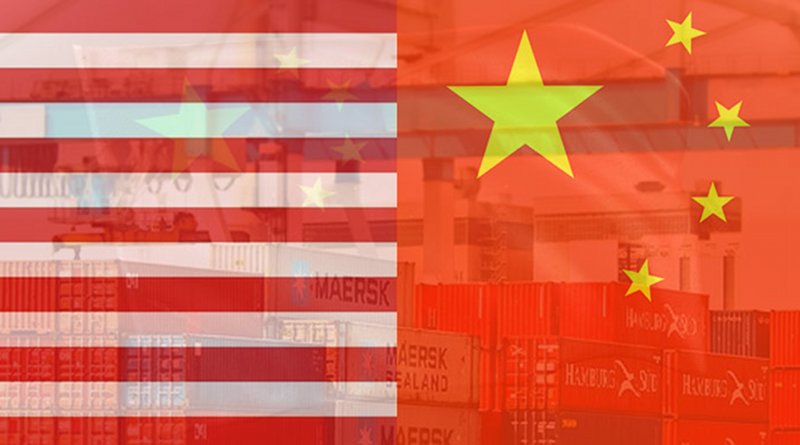US, China Agree To New Dialogue On Trade
By VOA
U.S. and Chinese officials expressed hope for positive economic relations as U.S. Commerce Secretary Gina Raimondo met with Chinese leaders for a second day in Beijing.
Chinese Premier Li Qiang told Raimondo that “sound economic relations and trade cooperation will not only be beneficial to our two countries, but to the whole world.”
Raimondo said the United States seeks to maintain its commercial relationship with China and hopes those ties “can provide stability for the overall relationship.”
Raimondo also highlighted global concerns such as climate change and fentanyl addiction, saying the United States wants to work with China “as two global powers to do what is right for all of humanity.”
“The world is expecting us to step up together to solve these problems,” she said.
Raimondo met earlier Tuesday with Chinese Vice Premier He Lifeng and said the United States is not looking to separate economically from China.
“While we will never of course compromise in protecting our national security I want to be clear that we do not seek to decouple or to hold China’s economy back,” Raimondo said.
He Lifeng said China wants to work on “new, positive efforts to keep economic consensus and step up cooperation.”
The United States and China on Monday agreed to create two separate dialogues to reduce misunderstanding of U.S. security issues central to its tight export controls on Chinese technologies, which Beijing sees as an attempt to quash its companies.
After meetings with Chinese Commerce Minister Wang Wentao, Raimondo said the two countries will establish a working group that will include business representatives to focus on commercial issues and a governmental information exchange to focus on export control issues.
She told Wang Wentao that the Biden administration seeks healthy competition with China and that a “growing Chinese economy that plays by the rules is in both of our interests.”
Wang Wentao said China is ready to work with the United States to “foster a more favorable policy environment for stronger cooperation between our businesses to bolster bilateral trade and investment in a stable and predictable manner.”
He said U.S.-China economic relations are important not just for the two countries, but also for the rest of the world.
Wendy Cutler, vice president at the Asia Society Policy Institute (ASPI), told VOA Mandarin via email Monday, “Establishing two new U.S.-China working groups is an important step in ensuring that the respective staffs of both commerce ministers will continue to engage beyond this week’s China visit by Secretary Raimondo.”
“The difficult part will be keeping Chinese expectations in check on the export control enforcement information group, while achieving meaningful outcomes in the commercial group to address U.S. business and worker concerns,” Cutler said.
Eric Zheng, president of AmCham Shanghai, told VOA Mandarin in a telephone interview Saturday that he sees the step as a very positive expression.
Zheng said, “Our hope is that the two governments will continue to engage in discussions. We are hopeful and at the same time we would like to share our out of the ground perspective, what’s going on in China, to provide her with more active, more nuanced understanding of the local market. It’s not black and white. There are opportunities for sure and most of our companies are doing well in China and they hope to continue to grow in this strategic market.”
“At the same time, there are issues, challenges that we faced with, such as a lack of transparency, IP protections, lack of a level playing field. So, there are challenges that we would like to share with the secretary as well,” he noted. Raimondo is scheduled to visit Shanghai on Tuesday. Her China visit concludes Wednesday, August 30.
However, U.S. Representative Michael McCaul, chairman of the House Foreign Affairs Committee, accused the Biden administration of being “at best naive” in starting a working group with China.
“The Biden administration’s decision to join forces with the Chinese Communist Party [CCP] to establish a working group on export controls and commercial issues with CCP officials is at best naive, but also dangerous,” he said. “The CCP steals U.S. intellectual property and hacks the emails of senior government officials — including Secretary Raimondo.
“The administration must stop treating the CCP as anything other than an adversary who will stop at nothing to harm our national security and spread its malign authoritarianism around the globe,” McCaul said.
Wang Yiwei, director of the Institute of International Affairs at Renmin University of China in Beijing, said the two countries need an enhanced dialogue on trade “in the lead-up to the U.S. presidential election … before it’s too late.”
“The U.S. ban on China-bound high-tech exports and investments has ended up promoting China’s [tech] autonomy and innovative capabilities,” he told VOA’s Mandarin Service. “All these developments do not serve the interests of [U.S.] high-tech firms.”
VOA Mandarin contributed to this report.

